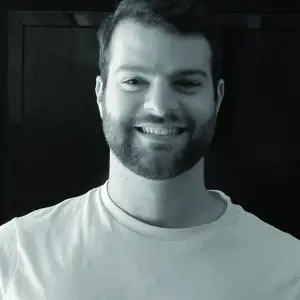DiBona: Internet, social media sharing contributes to distortion of interviews
In the past week, you may have read that Quentin Tarantino was criticized for a series of controversial remarks in an interview with The New York Times, but you most likely did not look further to read the comments themselves.
Even if you read the article in full, you would not have found those comments at all. This is because the reporting and sharing of the article quickly distorted Tarantino’s points on a variety of subjects including the state of television, the critical treatment of female directors and the handling of race in film, particularly when discussing the film “Selma.”
The Internet has hugely perverted the directness of a public figure’s remarks to his audience. The online sharing of an interview or profile ad infinitum causes an exponential increase in reframing and rewriting until what most people see someone said could not be farther from their original words. Though the manipulation is clear to anyone reading the article, the problem is in the modern Internet landscape, people don’t often read an article, they read about an article.
Reading the original article, it clearly says much more about the interviewer, acclaimed novelist Bret Easton Ellis, than it does about the interviewee, Tarantino. More than half of it is Ellis’s thoughts on Tarantino, rather than Tarantino’s thoughts. As he frequently does on his podcast, Ellis eagerly bends the subject to reinforce his own ideas on script structure, television versus film and women in the industry.
Anyone who reads articles regularly should immediately be able to sense the documentarian getting in the way of the subject. Recent information has shown Ellis actually misquoted Tarantino to apparently fit one of his own points, changing Tarantino asking “didn’t [Selma] deserve an Emmy?” to him stating “[Selma] deserved a Emmy (sic).”
The first of my friends to bring up the interview shared with me not The New York Times, but a GQ article that gleefully rips statements out of context and reframes them to make “shocking” reveals about Tarantino that do not exist in the way they are presented. But featuring a much more clickable title, it will be the one that reaches more people’s desktops and phones.
A public figure just used to have to worry about an interviewee misinterpreting his words and then the public misconstruing that. Now, public figures face a near endless cycle of reinterpreting that increases the danger of severe misinterpretation with each step.
First, there’s the interviewee’s interpreting, then there’s other writers interpreting that, then there’s the first cycle of posts and tweets interpreting that, then there’s another cycle interpreting those, and so on until Tarantino asking a clarifying question about “Selma” has become some random person saying he hates Selma, or worse, even though he has never seen the movie nor claimed to have.
One of the most paradoxical features of being a public figure is being required to give interviews while knowing the audience can easily misinterpret them. The simple solution of them ceasing to give interviews is absurd because it contradicts an essential duty of who they are.
Therefore, the solution falls on us. Don’t believe everything people say about what people say, but instead reverse the rabbit hole and track back to the original comments as often as possible.
Mark DiBona is a senior television, radio and film major. His column appears weekly. He can be reached at [email protected] and followed on Twitter @NoPartyNoDisco.
Published on October 20, 2015 at 12:36 am





